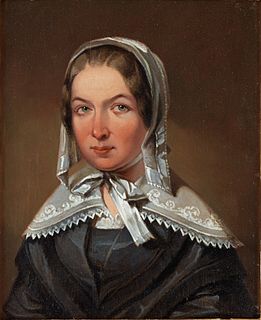A Quote by Paul Tillich
I have given no definition of love. This is impossible, because there is no higher principle by which it could be defined. It is life itself in its actual unity. The forms and structures in which love embodies itself are the forms and structures in which love overcomes its self-destructive forces.
Related Quotes
The face of love is variable. I am able to love without demanding that my relationships assume the structures and forms I might choose for them. My love is fluid, flexible, committed, creative. My love allows people and events to unfold as they need. My love is not controlling. It does not dictate or demand. My love allows those I love the freedom to assume the forms most true to them. I release all those I love from my preconceptions of their path. I allow them the dignity of self-definition while I offer them a constant love that is every variable in shape.
The experience of not forgetting consciousness alone is the state of devotion which is the relationship of unfading real love, because the real knowledge of Self, which shines as the undivided supreme bliss itself, surges up as the nature of love. Love itself is the actual form of God. That is pure bliss. Call it pure bliss, God, Self, or what you will. That is devotion, that is realization and that is everything.
Love has a particular trait: far from being indulgent or fickle, it has a task or purpose to fulfil: to abide. By its nature love is enduring. Again, dear friends, we catch a further glimpse of how much the Holy Spirit offers our world: love which dispels uncertainty; love which overcomes the fear of betrayal; love which carries eternity within; the true love which draws us into a unity that abides!
Religion itself cannot but be dynamic which is why "return" is an incorrect term. A return to the forms of religion which perhaps existed a couple of centuries ago is absolutely impossible. On the contrary, in order to combat modern materialistic mores, as religion must, to fight nihilism and egotism, religion must also develop, must be flexible in its forms, and it must have a correlation with the cultural forms of the epoch.
Human physical structures and intellectual structures are generally studied in different ways. The assumption is that physical structures are genetically inherited and intellectual structures are learned. I think that this assumption is wrong. None of these structures is learned. They all grow; they grow in comparable ways; their ultimate forms are heavily dependent on genetic predispositions.
Even a superficial glance is sufficient to show that all the innumerable forms in which the life-urge of Nature manifests itself are subject to a fundamental law - one may call it an iron law of Nature - which compels the various species to keep within the definite limits of their own life-forms when propagating and multiplying their kind.
Religions, creeds and forms are only a characteristic outward sign of the spiritual impulsion and religion itself is the intensive action by which it tries to find its inward force. Its expansive movement comes in the thought which it throws out on life, the ideals which open up new horizons and which the intellect accepts and life labours to assimilate.
A cross borne in simplicity, without the interference of self-love to augment it, is only half a cross. Suffering in this simplicity of love, we are not only happy in spile of the cross, but because of it; for love is pleased in suffering for the Well Beloved, and the cross which forms us into His image is a consoling bond of love.
When the first time of love is over, there comes a something better still. Then comes that other love; that faithful friendship which never changes, and which will accompany you with its calm light through the whole of life. It is only needful to place yourself so that if it may come, and then it comes of itself. And then everything turns and changes itself to the best.
This is a human form in which every Divine entity, every Divine principle, that is to say, all the names and forms ascribed by man to God, are manifest... You are very fortunate that you have the chance to experiences the bliss of the vision of the form, which is the form of all gods, now, in this life itself.
True love has nothing to do with liking someone, agreeing with him or her or being compatible. It is a love of unity, a love of seeing God wearing all the masks, and recognising itself in them all. With this love you can feel the walls of opposition come down naturally in the acknowledgement of deep connection. Not only do the walls of opposition fall, but love is felt for every human being and for life itself.







































